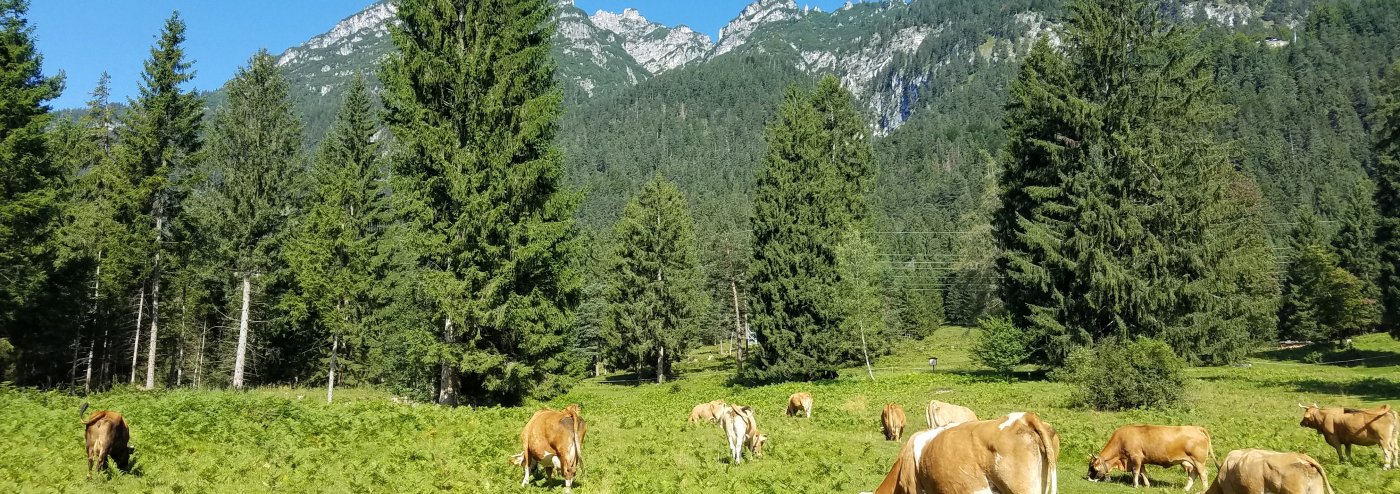
More forest and less meat to achieve the Paris agreement
A paper led by the group member Heera Lee is in press in Environmental Research Letters (https://doi.org/10.1088/1748-9326/ab3744).
Afforestation can make a significant contribution to limiting global warming in accordance with the Paris agreement. Researchers in our group have used simulations to determine which conditions must be met in Europe for this to happen. As the study now published in the journal Environmental Research Letters shows, sufficient enlargement of forest areas requires a change in the food system, especially a reduction in meat consumption. Using a regional integrated assessment model (IAP: http://impressions-project.eu/show/IAP2_14855), they compare stylised scenarios of changes in meat demand, bioenergy crop production, irrigation efficiency, and crop yield improvement. Only 42 out of 972 model simulations achieved minimum levels of food provision and forest extent without the need to change dietary preferences but relied on crop yield improvements within Europe of at least 30%. Maintaining food imports at today’s levels to avoid the potential displacement of food production and deforestation required at least a 15 % yield improvement, or a drastic reduction in meat consumption (avg. 57 %). The results suggest that the large-scale afforestation/reforestation planned in European targets is virtually impossible to achieve without transformation of the food system, making it unlikely that Europe will play its required role in global efforts to limit climate change without utilising land beyond its borders.
Keywords:
the 1.5 ◦C Paris target, Negative emissions technologies, dietary change, reforestation, afforestation, carbon sequestration, food consumption
Open Access to the paper:
https://doi.org/10.1088/1748-9326/ab3744



